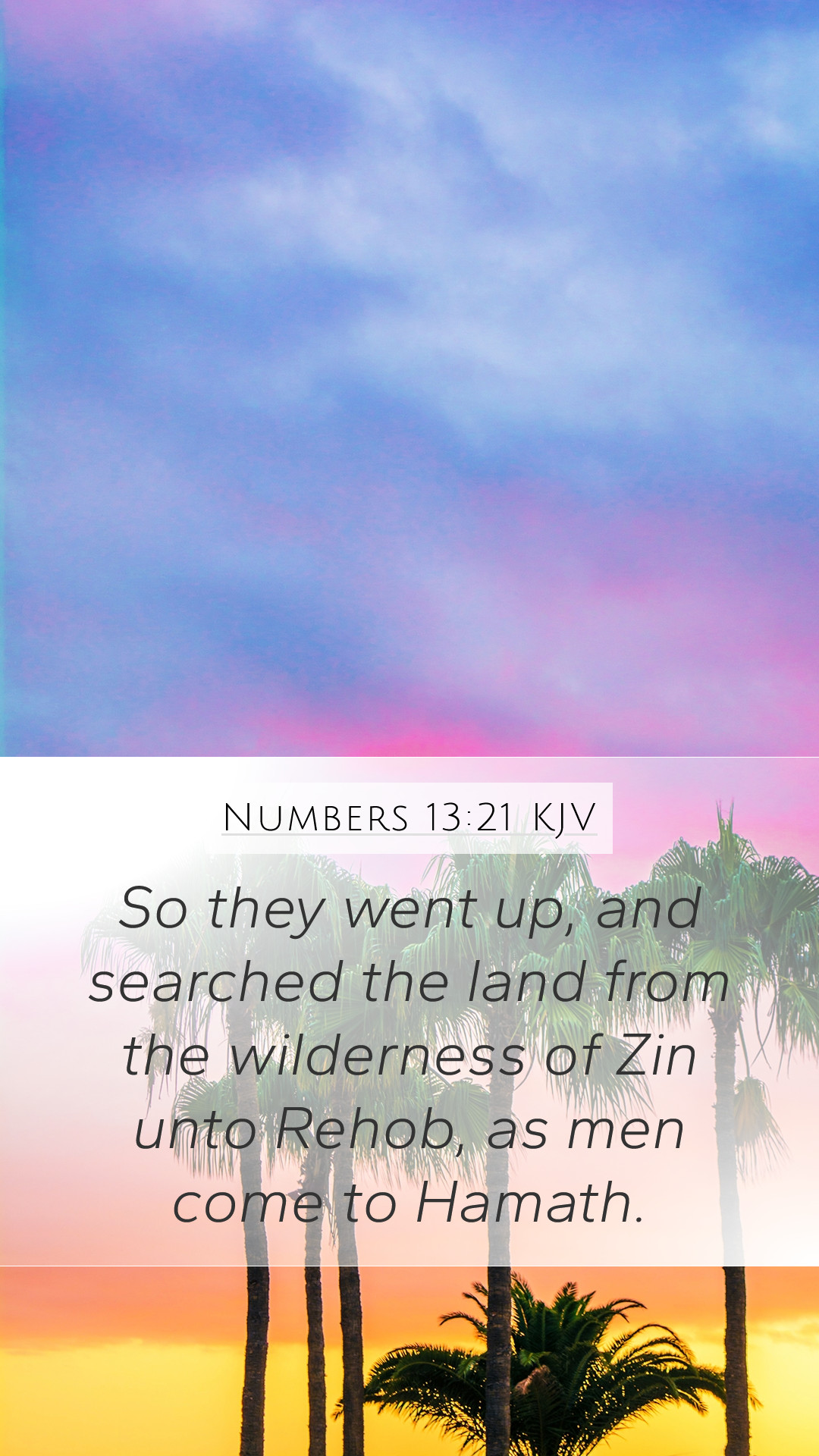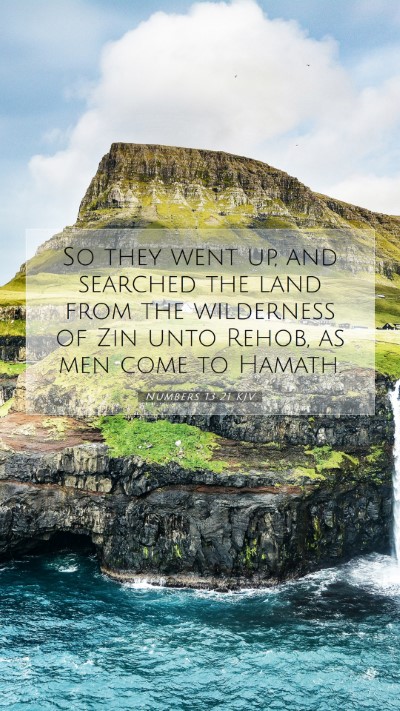Understanding Numbers 13:21 - A Commentary
Numbers 13:21 states, "So they went up and spied out the land from the wilderness of Zin to Rehob, near Lebo Hamath."
This verse is pivotal in the narrative of the Israelites as they prepare to enter the Promised Land. The task of spying out the land is taken seriously, and through this, we gain valuable insights into the themes of faith, obedience, and the nature of God's promises.
Context and Background
To fully appreciate the significance of Numbers 13:21, it is crucial to understand its context within the book of Numbers and the journey of the Israelites. After their exodus from Egypt, they wandered in the wilderness. God's promise was that they would inherit the land of Canaan, flowing with milk and honey. In this chapter, the leader Moses sends out twelve spies to scout the land in preparation for that promise.
Insights from Public Domain Commentaries
Matthew Henry's Commentary
Matthew Henry points out the diligence and care taken by Moses in sending the spies to explore the land. He highlights that this act is both a show of faith and an acknowledgment of the challenges that lie ahead. Henry emphasizes that the spies were sent to confirm God's promise and their readiness to take possession. The extensive journey mentioned from Zin to Rehob underlines the vastness of the land and the multitude of blessings available.
Albert Barnes' Commentary
Albert Barnes explains that the details of the spying mission are significant. By specifying the geographical boundaries being explored, Barnes illustrates the deliberate nature of the mission and God's providence in leading His people. The listing of places serves to anchor the narrative in real history, reminding readers of the tangible nature of God's promises. The act of sending spies is portrayed not only as an exploration but also as a moment of testing for the Israelites' faith and obedience.
Adam Clarke's Commentary
Adam Clarke delves into the implications of the spies’ mission. He notes that the act of spying is multifaceted, reflecting the Israelites' desire for assurance and God’s command to possess the land. Clarke suggests that the mention of prominent locations strengthens the narrative, emphasizing the royal potential of Canaan. He also warns that the act of spying could lead to anxiety and disbelief among the people, depending on how they interpret what they see.
Meaning and Applications
Numbers 13:21 explores critical themes that resonate with those engaged in Bible study insights and Bible verse explanations.
The act of scouting the land symbolizes the human instinct to seek evidence and reassurance, which is often essential in Bible study groups and online Bible studies.
It teaches us the importance of stepping out in faith despite uncertainties, paralleling modern challenges believers face today.
The Call to Faith
The command to spy the land can be seen as a dual opportunity: a test of faith and a chance for preparation. Insights drawn from this verse can guide readers to reflect on their own faith journeys, encouraging them to trust in God's promises as they navigate life’s complexities.
Application in Daily Life
As believers engage in Bible study lessons and consider how to interpret Bible verses practically, Numbers 13:21 prompts self-examination about how they approach the "land" or promises God places before them.
Are they filled with faith when facing the unknown, or do they become intimidated by potential challenges?
Cross References
- Deuteronomy 1:22-23 - The selection of spies to assess the land is reiterated.
- Joshua 2:1 - The theme of scouting the land continues with Rahab’s story.
- Hebrews 3:19 - Reflects on the Israelites' lack of faith in God's promises.


